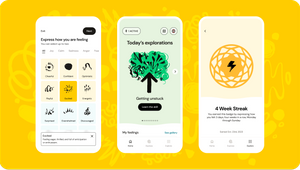
From Booking to Loyalty: How AI Shapes the Travel Experience

Travel has always been part of the experience economy - but now, the experience is almost entirely digital. And today’s travellers aren’t just digital-first - they’re digital-only. According to the 2024 IATA Global Passenger Survey, only 16% of travellers prefer human interaction when booking or managing their travel. The rest are tapping, swiping and expecting instant, intuitive, personalised service without ever talking to someone.
This isn’t just a stat - it’s a wake-up call. For travel brands still relying on generic email blasts, static website content or outdated CRM campaigns that treat every traveller the same, the message is clear: AI isn’t optional. It’s overdue.
Today's traveller is a digital-native experience seeker. They're not wandering into travel agents’ offices or waiting patiently on hold. They expect brands to know what they want, anticipate their next move and make it easy - all before they even ask.
Per IATA, 71% of passengers book travel digitally, and more than half prefer doing it through the airline’s own channels. So not only do they expect digital self-service, they expect it to be personalised and friction-free.
If a brand can’t meet that expectation, travellers won’t wait. They’ll move on to a competitor who can.
AI = The Engine of Modern Travel Experience
AI enables travel brands to move beyond one-size-fits-all promotions and toward a real-time, predictive content strategy that adapts to individual travellers. It empowers marketers and CX teams to:
- Predict Intent: Based on browsing patterns, travel history and loyalty behaviour.
- Curate Inspiration: Deliver destination content, experiences and upsells that feel relevant.
- Automate Personalisation: Across booking paths, apps, emails, loyalty platforms and even in-stay recommendations.
- Streamline Service: Reduce reliance on customer support by offering proactive, AI-powered solutions to common travel pain points.
And it works. Brands like Qatar Airways use AI to deliver personalised loyalty offers and predictive pricing, ensuring customer journeys begin long before the flight. Marriott International leverages AI within its Bonvoy platform to shape digital guest experiences, suggest local activities and adjust promotions dynamically based on user behaviour.
These aren’t pilot projects - they’re core infrastructure for global travel leaders.
The Personalisation Mandate
Travel isn’t a linear funnel - it’s a four-phase life cycle that demands a strategic narrative, beginning with anticipation and ending with loyalty:
- Anticipation and Inspiration: AI-powered storytelling, trip ideas, destination mood boards and social content.
- Discovery and Booking: Dynamic search, predictive pricing and optimised booking flows.
- In-Trip Service: Personalised recommendations, in-app messaging and room-level customisation.
- Post-Trip and Loyalty: Feedback capture, behaviour-driven rewards and emotionally relevant re-engagement.
Each phase is an opportunity to build trust - or lose it.
Automation Without Losing the Human Touch
Ironically, delivering more human-centred experiences now means using fewer actual humans. AI enables brands to scale empathy by understanding preferences and delivering service without requiring constant human input.
AI is not a trend. It’s the only realistic way to meet demand without inflating costs. The infrastructure exists, the use cases are proven and the customer base is already expecting it.
What remains is the will to execute. If you’re still debating whether your brand needs AI, let us help by providing the answer: Yes. Yesterday.
Because in this industry, it’s not the biggest brands that win. It’s the ones who can adapt at scale, with speed and personalisation.
If only 16% of travellers want human help, the rest expect everything to just work. AI is how you meet that expectation - clearly, efficiently, and at scale. The brands that embrace this shift won’t just keep up - they’ll come out ahead.
Brent Buntin is the chief growth officer of Code and Theory.















